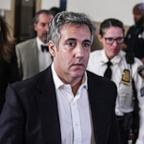GM's German unit Opel envisions more independent future, seeks aid
RUESSELSHEIM, Germany -- Officials from General Motors Europe proposed Friday that its Opel unit loosen its ties with the beleaguered U.S. parent company and said the German automaker needs $4.2 billion in government aid to stay afloat.
Managers envision Opel and its British sister unit Vauxhall becoming a "legally demarcated, at least partly independent business unit," GM Europe President Carl-Peter Forster said after a meeting of Adam Opel's supervisory board. Forster heads the board, the equivalent of a U.S. board of directors.
The German government had demanded that the company present it with a plan for the future before it would consider any aid to help preserve the roughly 25,000 jobs at Opel's various German facilities. Another stipulation was that no aid should flow to the U.S. parent in Detroit.
While Forster said the government is aware of the proposal, it is to be formally presented on Monday.
Officials in Berlin had no comment on the announcement, but the governor of the state of Hesse, home to an Opel factory, praised the company for its efforts.
"It good that we have a concrete plan on the table," Roland Koch said.
Opel Chief Executive Hans Demant said in televised remarks that the plan contains "the goal of creating an independent European Opel organization that is open for investment from third parties" and a "walling-off concept."
Forster made clear that that it is still important for the unit to remain part of the General Motors network, in order to retain access to technology, but explained that instead of wholly belonging to GM, the goal would be to have third parties hold a more than 25% stake. He said specifics had not been determined.
"That is typically a discussion that will have to be held with interested parties," Forster said.
He said the company will try to avoid any plant closures or layoffs as it tries to reduce capacity.
Opel will need $4.2 billion in financing or guarantees from European authorities over the next two years, Forster said. The aim would be to pay the money back in 2014 or 2015.




